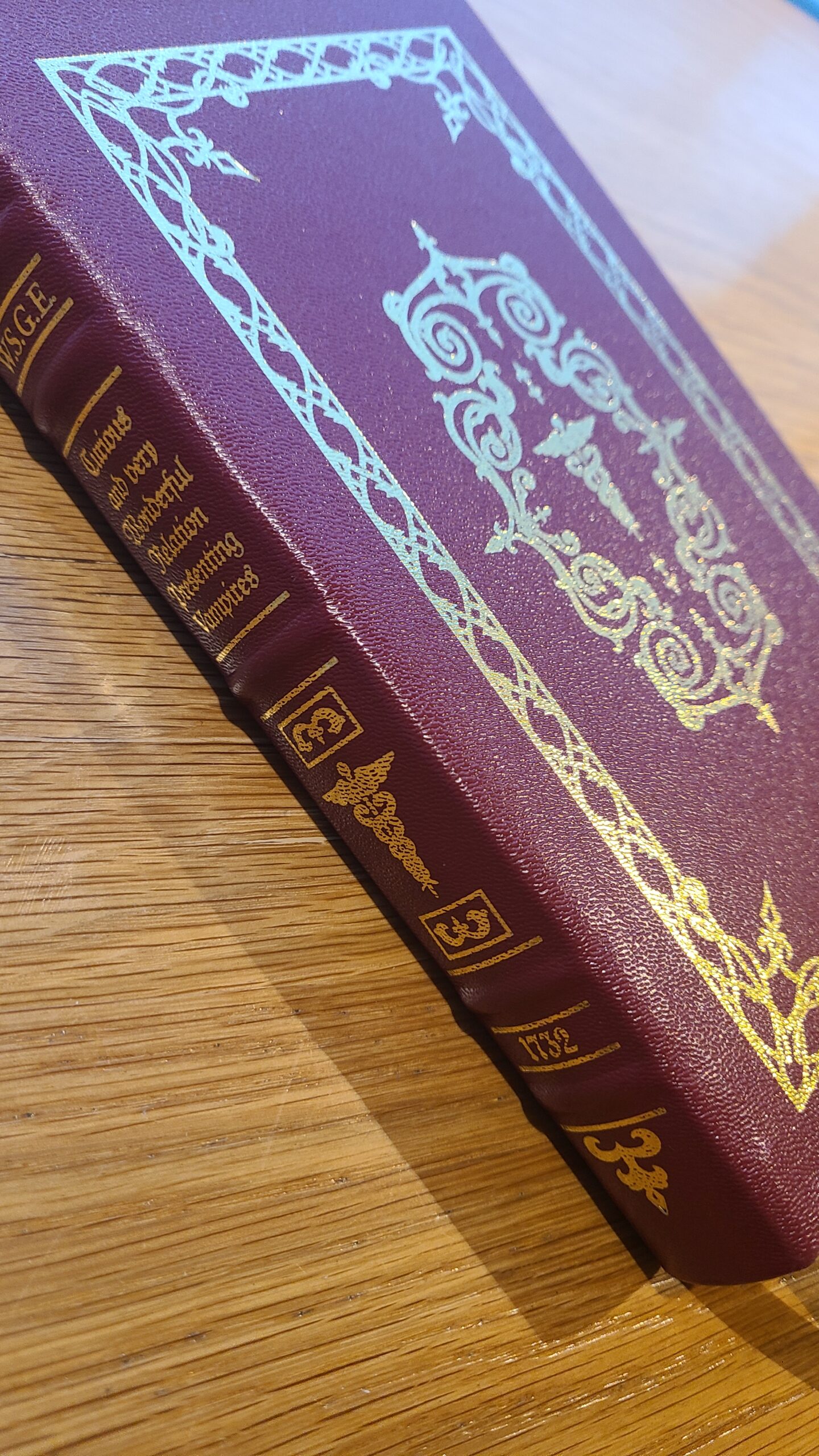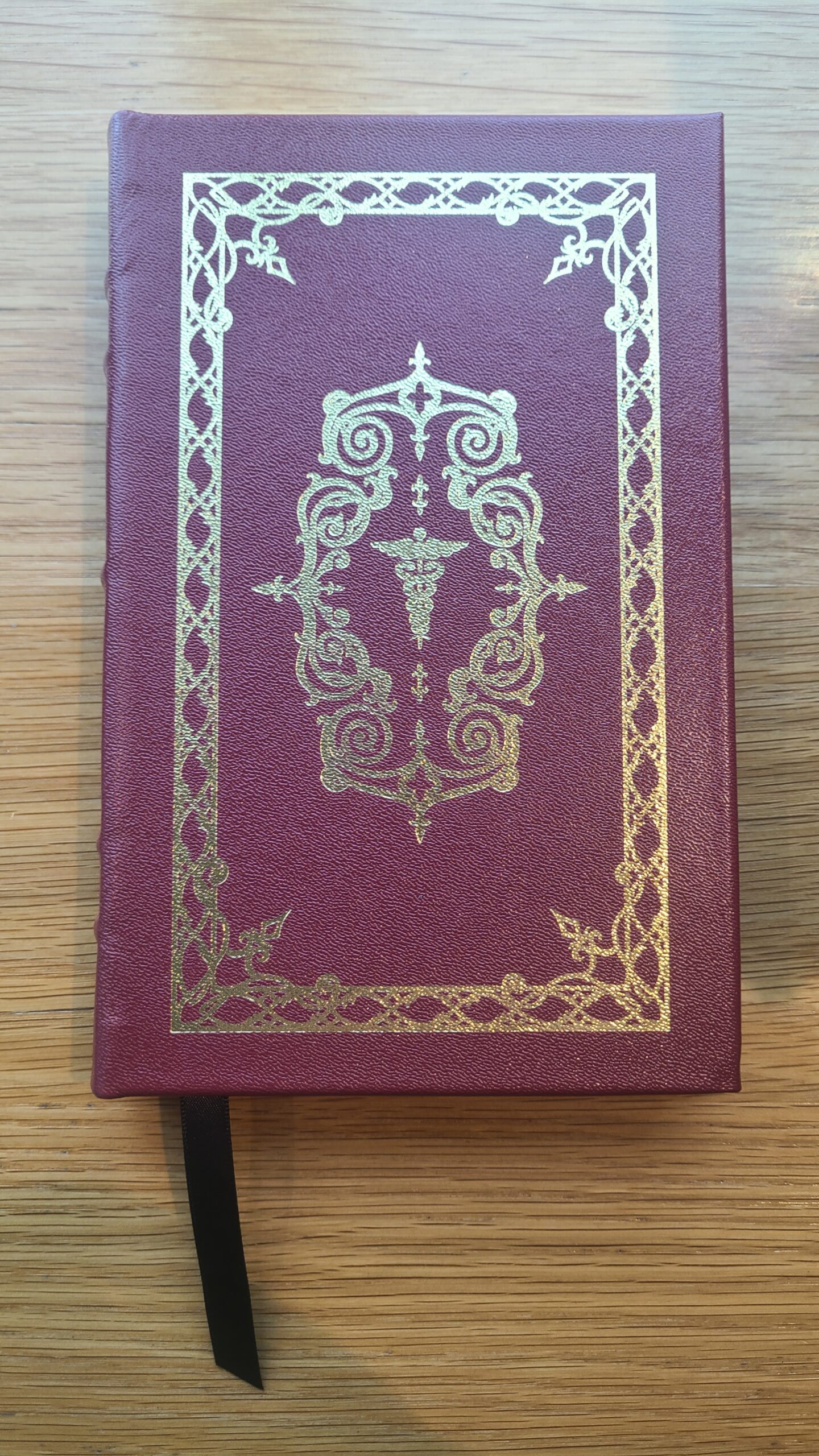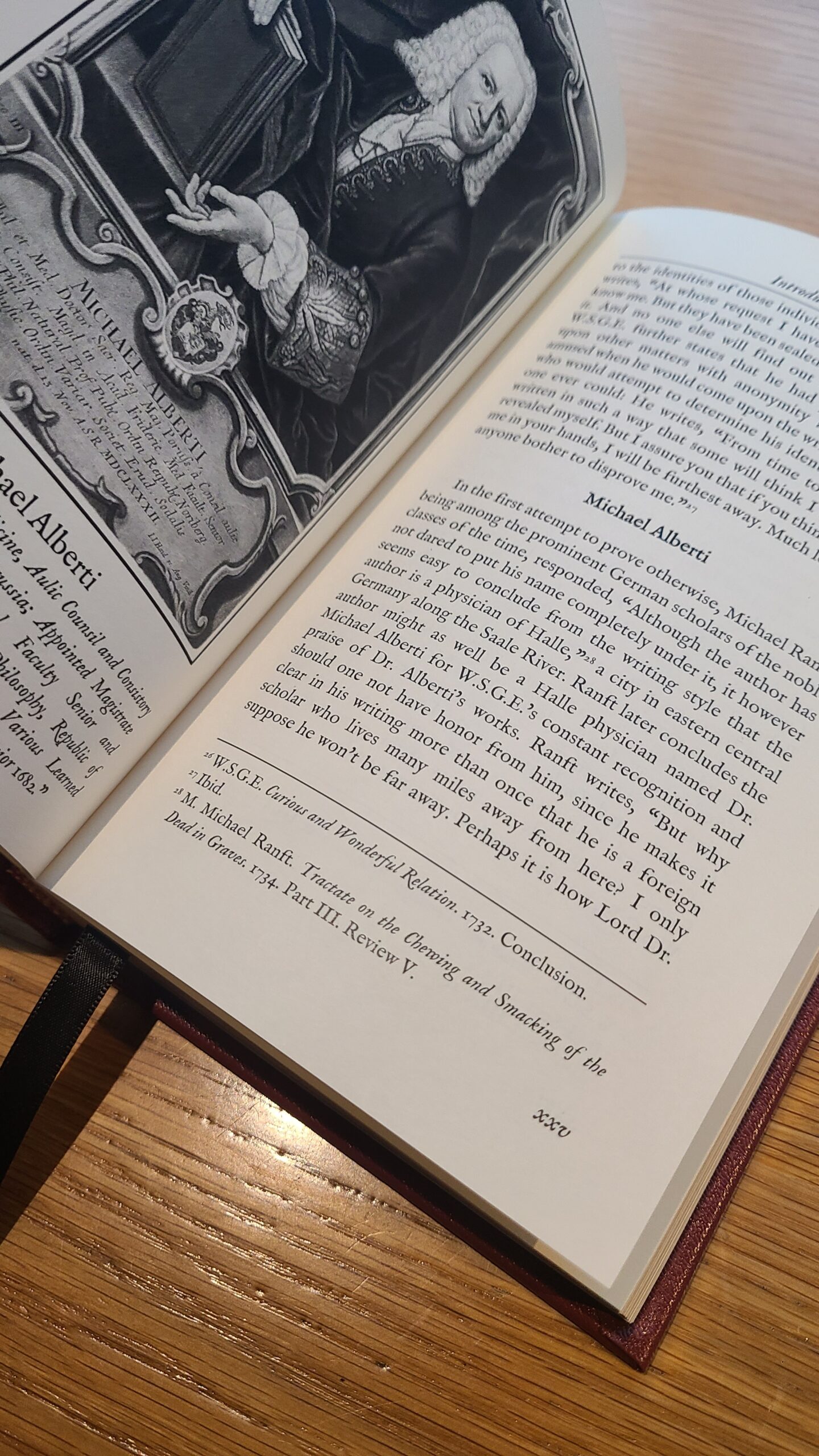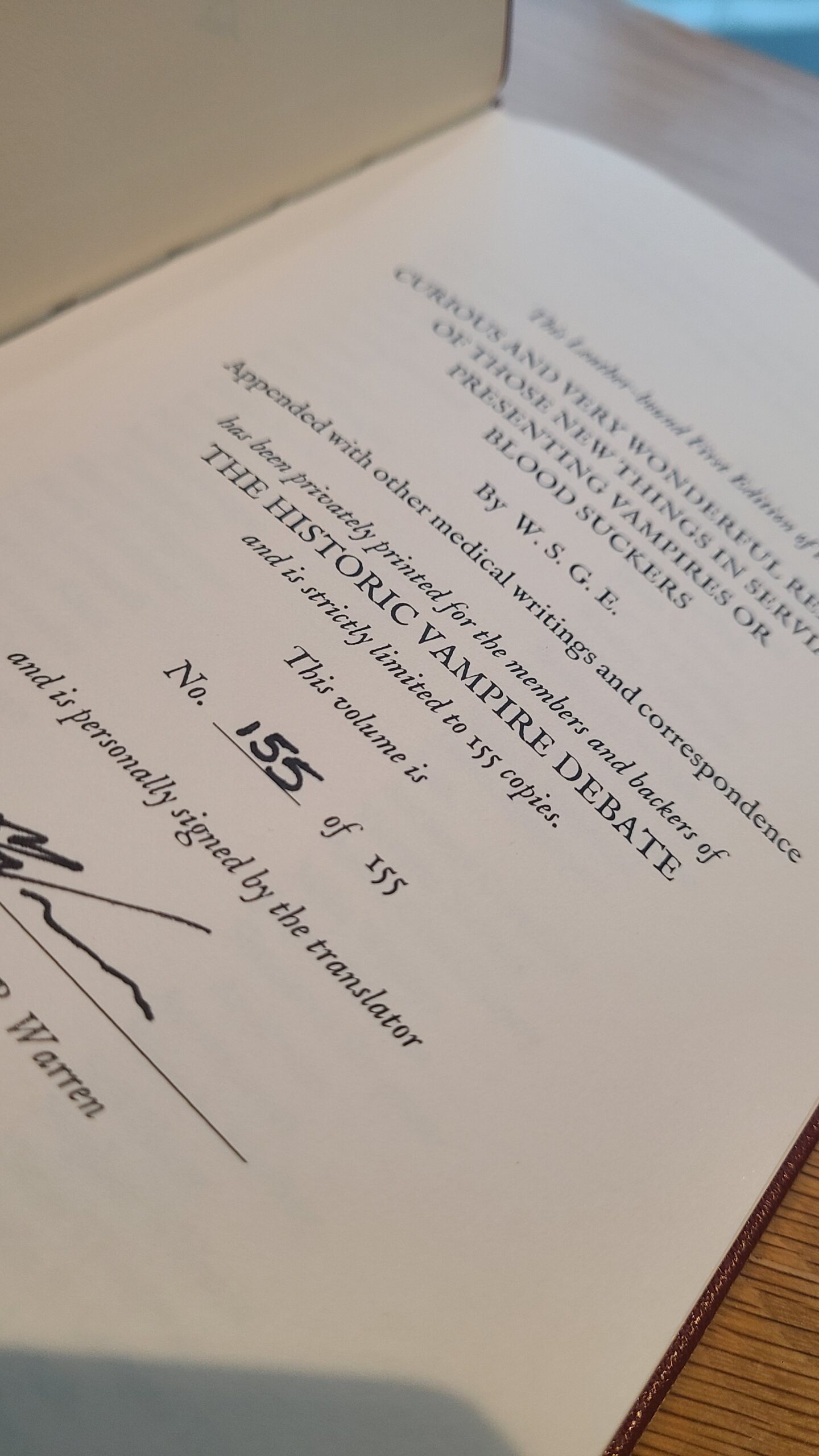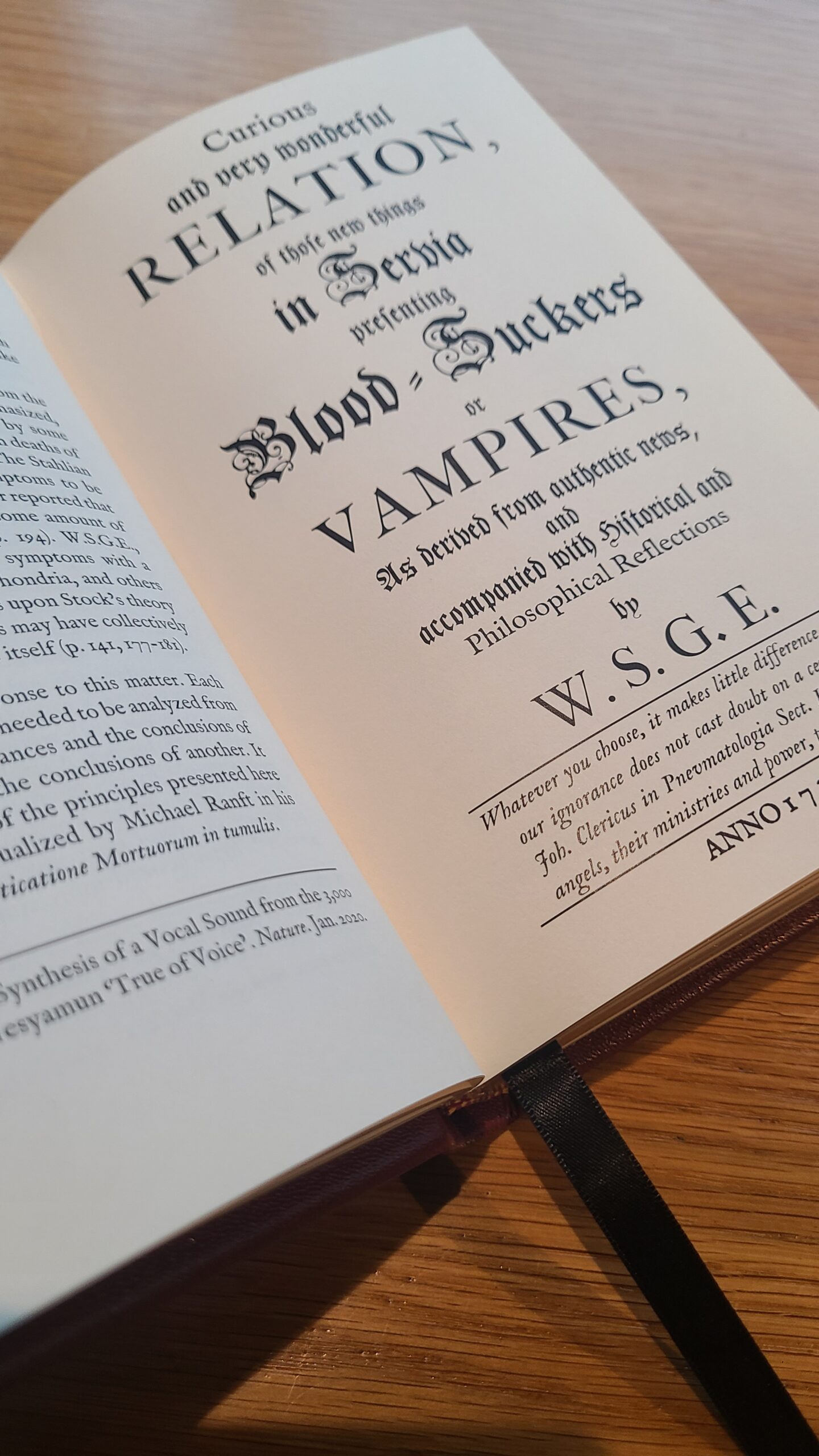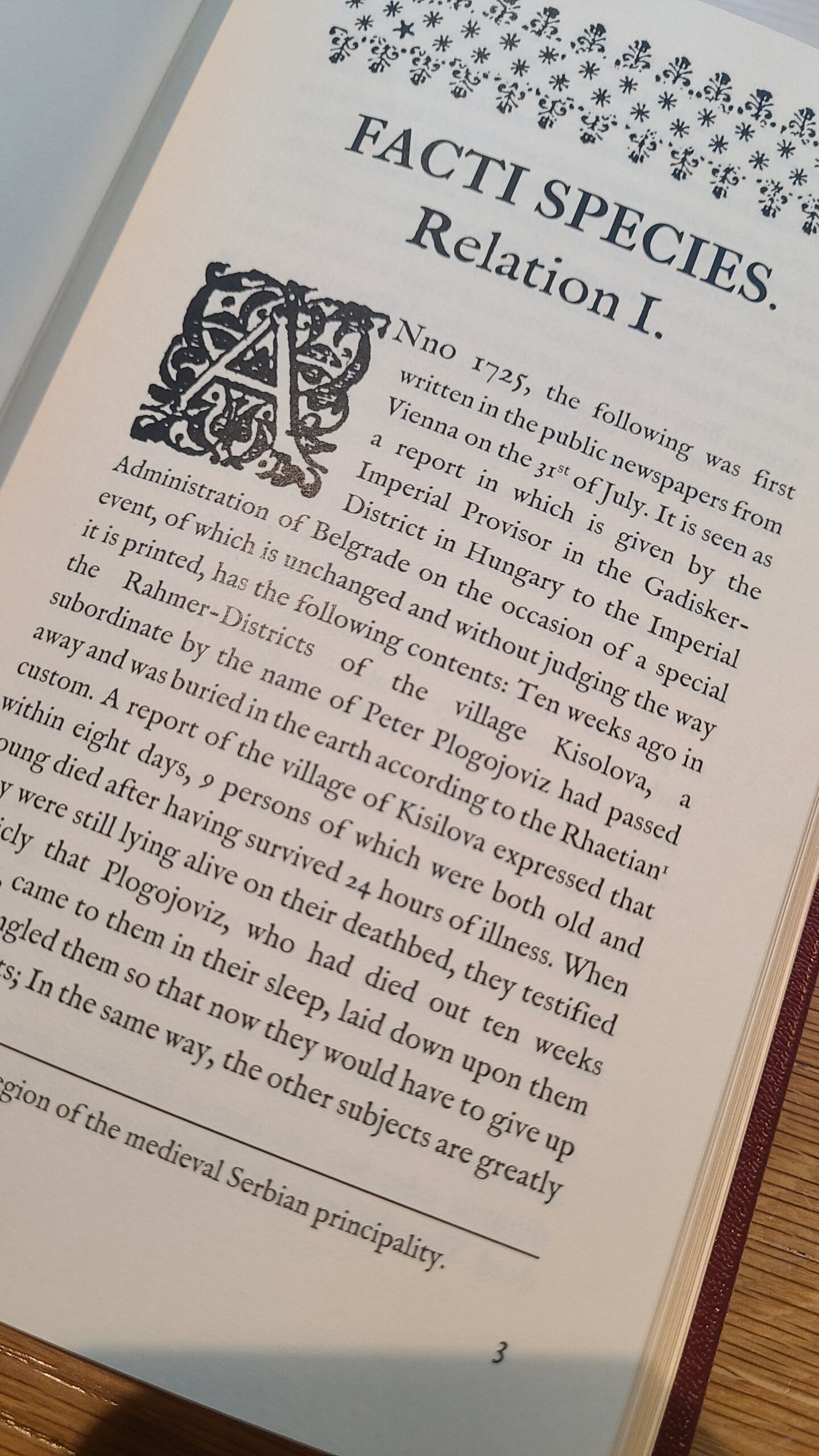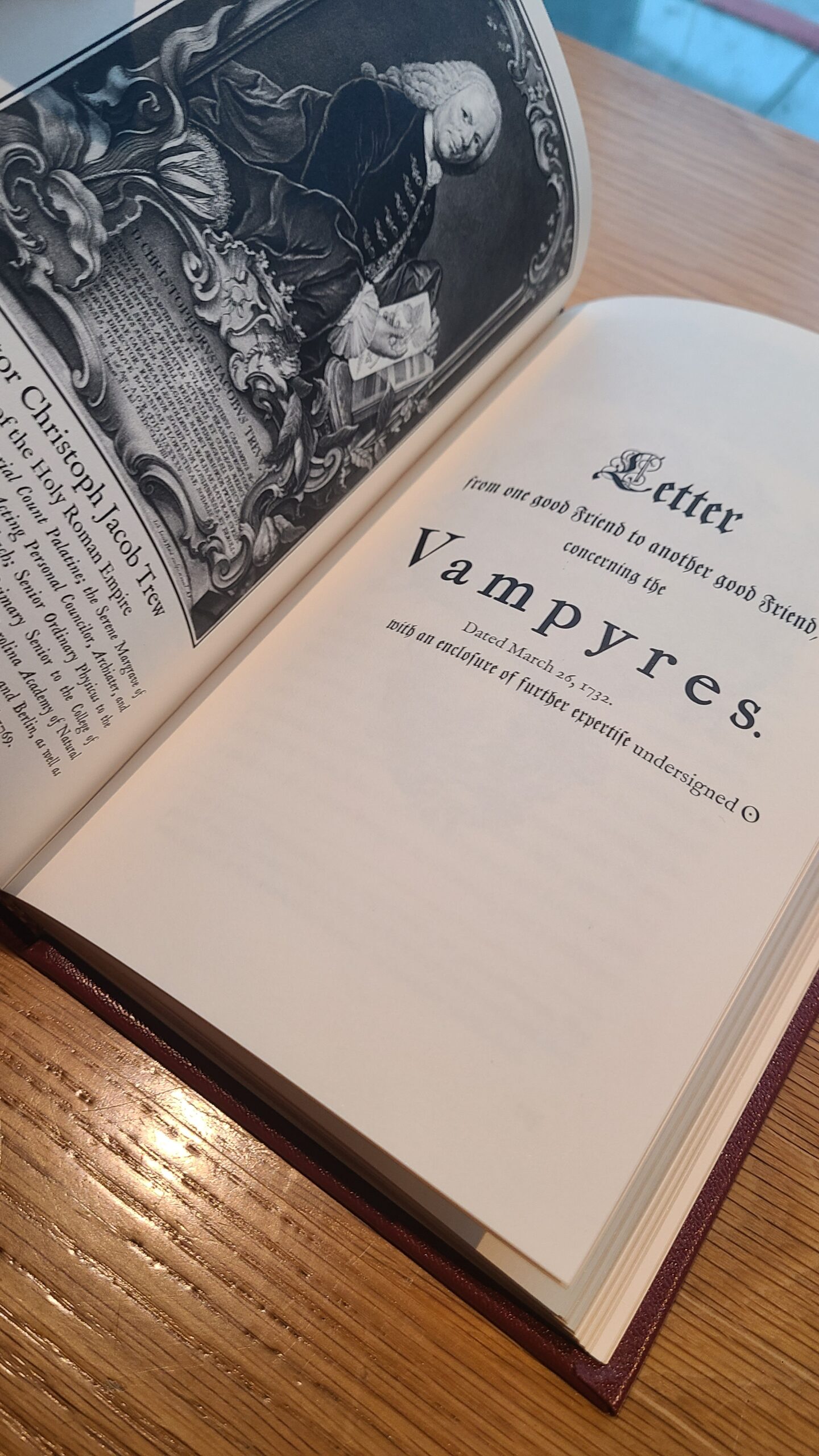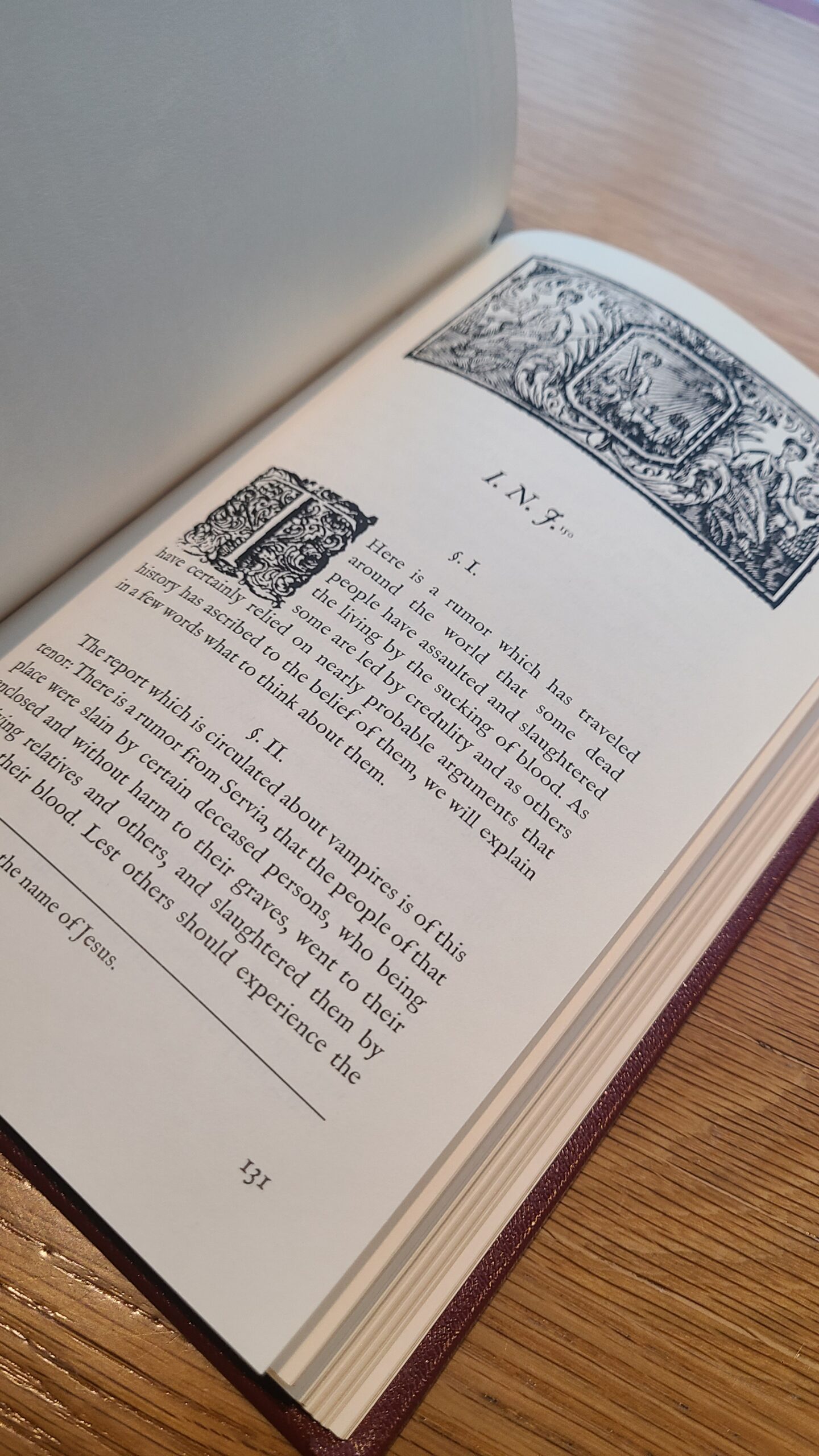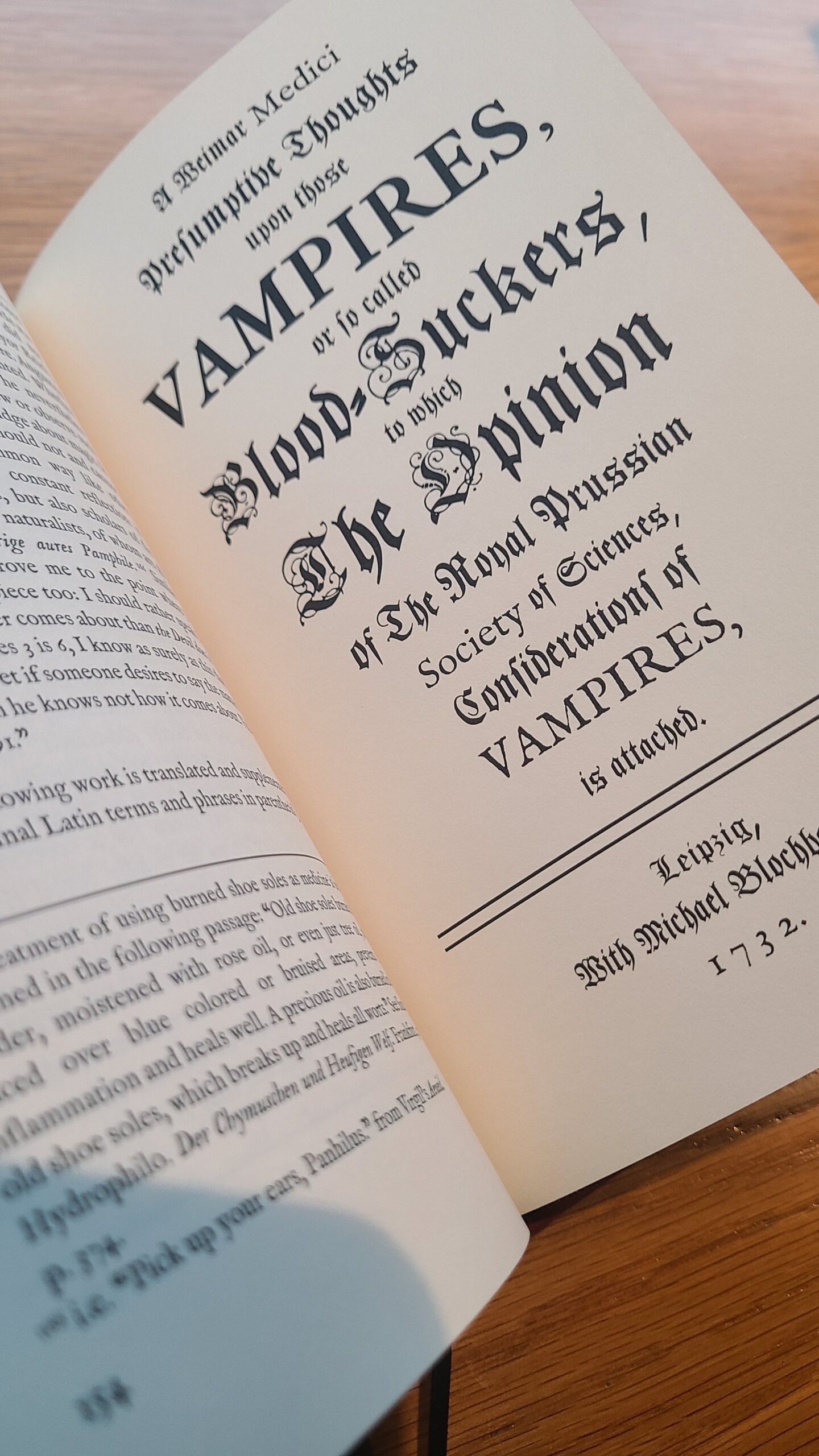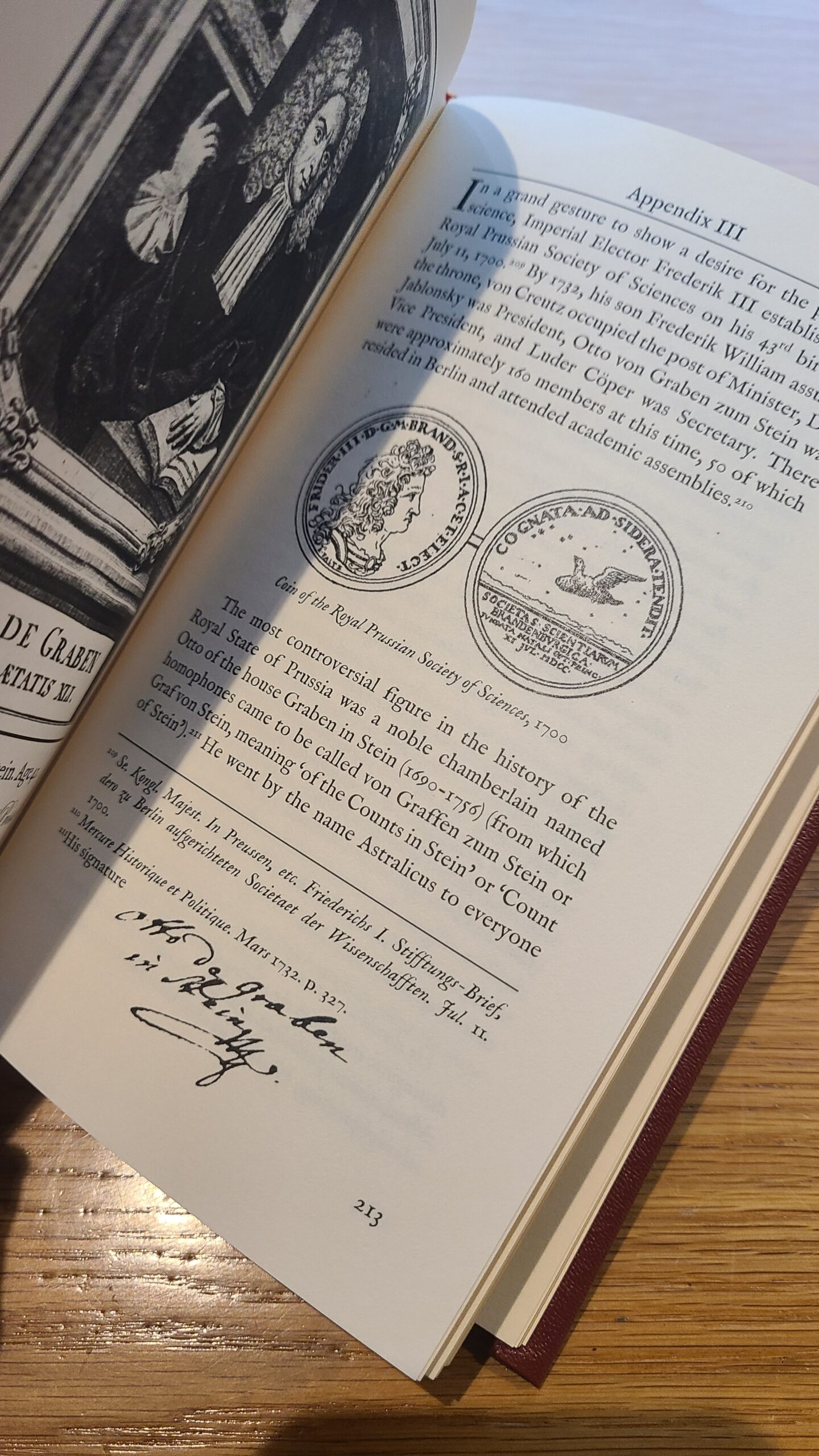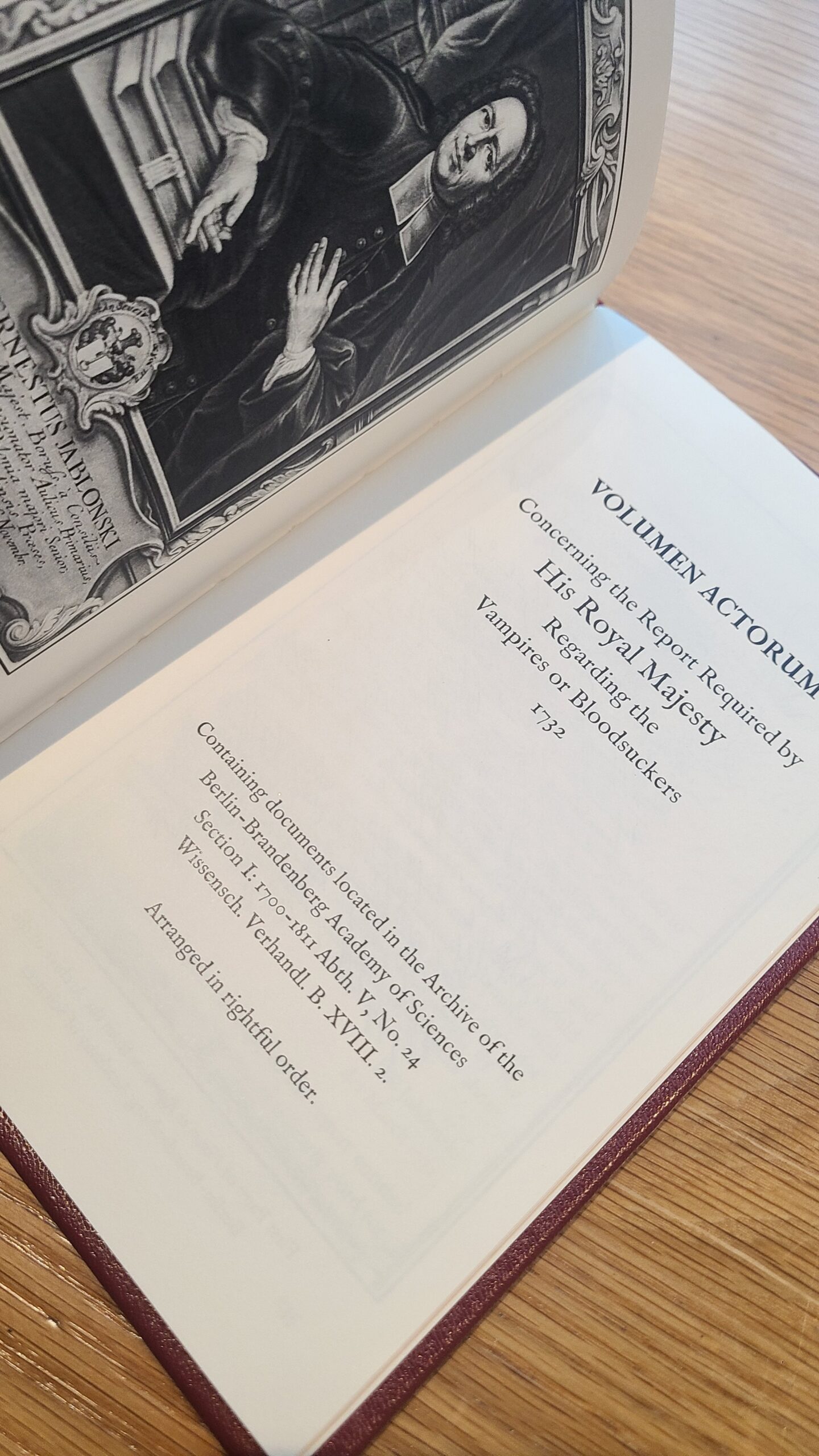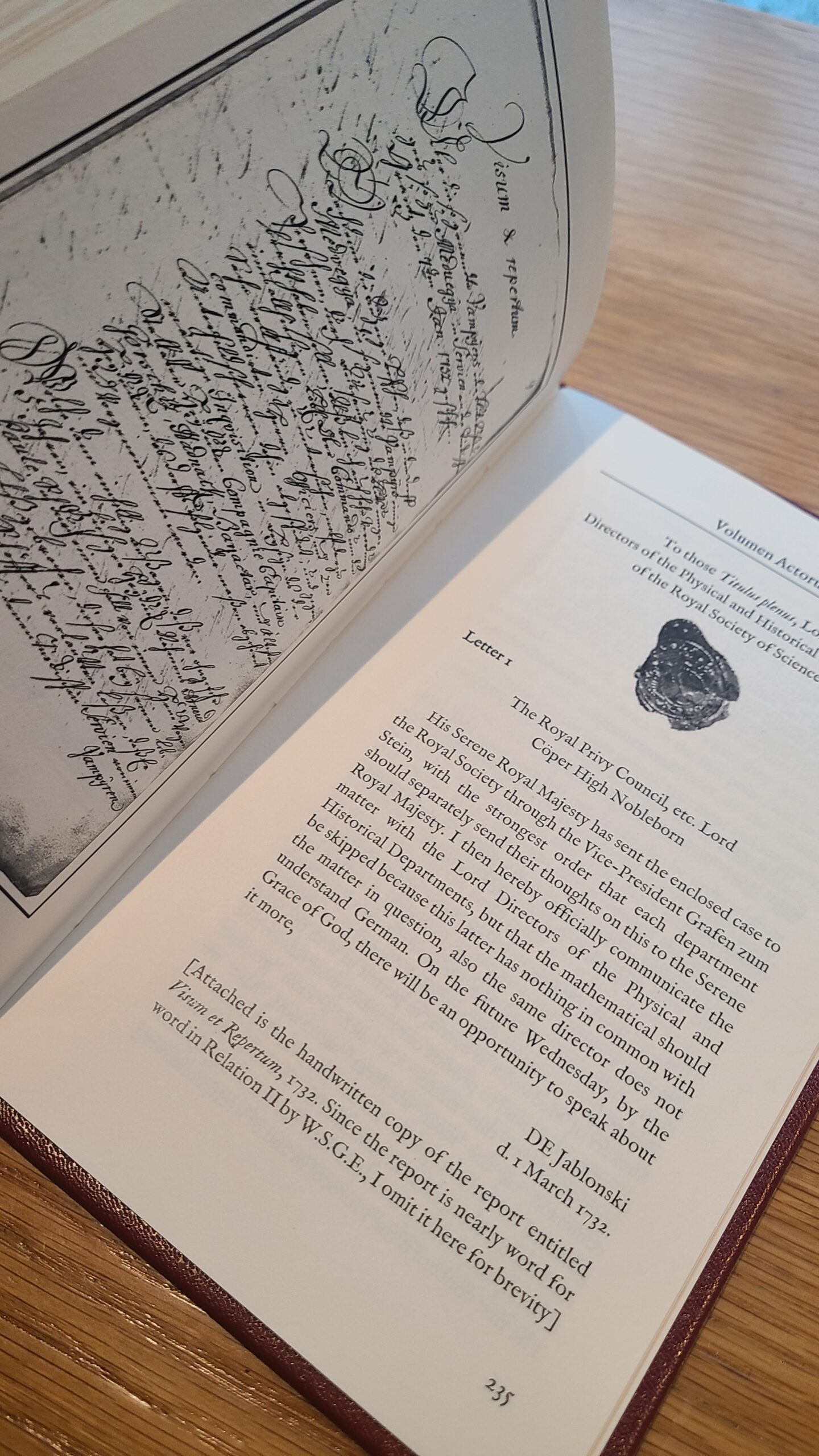The Historic Vampire Debate: Volume Medicine (1732) Signed Leatherbound First Edition
The Historic Vampire Debate Project brings a volume that compiles several Early Modern Medical writings on the principles of pathology made in response to the imperial reports of vampirism that were made public after requests for an academic opinion the matter were made from royal and military officials.
This Leather-bound limited edition features:
W.S.G.E. A Curious and very Miraculous Report on the New Things in Serbia Presenting Vampires or Blood-Suckers, Derived from authentic news, and accompanied with historical and philosophical reflections. (1732) The volume is expanded and Appended with correspondence and other medical writings from this historical debate.
– This main work by W.S.G.E. was semi-anonymously written from the perspective of a physician in the form of annotations on two main reports describing the many exhumed cadavers that were observed without decay despite being buried for up to 10 weeks. He writes as a noble describing several conversations he had on the strange news of vampirism, and critiques their perspectives as an experienced Medicus. In his annotations upon the narratives and autopsies of the reported vampires, he lays out a description of many diseases, and reflects upon the smacking, the bleeding, and incorruptibly of corpses that were recently unearthed and executed. His writings heavily cite the famed Michael Alberti, who wrote extensively on early criminal forensics and imaginary diseases.As the questions certainly arose by many of whether this plague was caused by a devilish specter, or by the haunting of an astral spirit of the dead that still inhabited the body within the grave, our author also reluctantly delves into theological disputes of whether such things can be derived from the principles of nature.
The Medicine volume was expanded to include:
- Undersigned
 – Letter of One Good Friend to Another Good Friend Concerning Vampyres, Dated March 26, 1732.
– Letter of One Good Friend to Another Good Friend Concerning Vampyres, Dated March 26, 1732. - Johann Stock – De Cadaveribus Sanguisugus, on those so called Vampires, etc. Dated May 13, 1732.
- Johann Ernst Stahl & Johann Christian Fritsch – Presumptive Thoughts of a Weimar Medicus upon those Vampires, etc. (1732)
- Volumen Actorum – Documents from the Berlin-Brandenburg Academy of Sciences Archive. (1732)
The Introduction provides a narrative of how King Frederick William I came to be associated with an imperial inquisition carried out by the regiment surgeons of Prince Charles Alexander. An investigation into the identity of the mysterious author “W.S.G.E.” provides a detailed analysis of the medical and chemical philosophies of Michael Alberti, George Ernst Stahl, and Christian Fritsch as they relate to disease, digestion, fermentation, and human bodily decay. Also provided is a brief modern scientific analysis of the postmortem changes and phenomena that were observed in the autopsy report that detailed the dissections and visitations of 13 exhumed bodies in 1732. The appendices provide further correspondence, documents discovered from the archives of the Berlin-Brandenburg Academy of Sciences, biographies of the authors, background information behind King Frederick William’s commission of the Royal Prussian Society of Sciences to publish an opinion on vampirism in 1732, and the life and background of the society’s Vice-President, occultist Otto vom Graben zum Stein.
